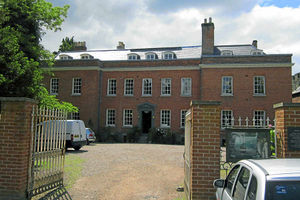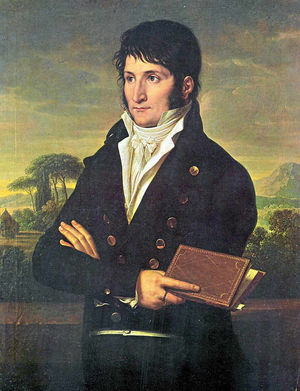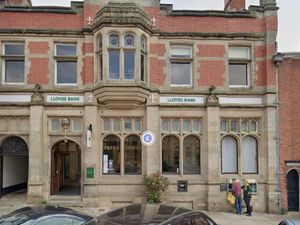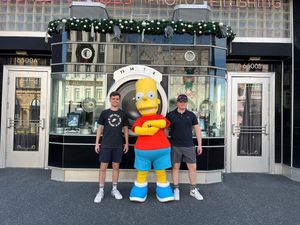Napoleon's brother: snared in Shropshire
He was the enemy. Bonaparte. Here. In Shropshire. Living with his family and servants in splendour in one of the finest buildings in Ludlow while war raged between Britain and France.

However, this was not arch enemy and the popular embodiment of evil Napoleon Bonaparte, but his brother, Lucien, who for several months was held as a prisoner-of-war in the south Shropshire town where his stay was a sensation with a local population fascinated by this unusual "celebrity" in their midst.
"A modern analogy might be to imagine the reaction and interest if Hitler's brother had come to live in England with his family during World War Two," says Barney Rolfe-Smith, who has researched the story of this most unusual episode in Shropshire history in a new book, "A Gilded Cage".
Lucien had fallen out with Napoleon, who was dubbed The Great Tyrant. He had been living in Italy, and was held while trying to make a sea journey to America, where he intended emigrating with his family.
Classed as a prisoner-of-war, he was brought to England. Thousands of French prisoners were already being held. However, officers and those of elevated status could agree to parole, which meant swearing on their honour to observe certain conditions restricting their movements and activities.
"In the area around the Welsh Marches, and in particular Ludlow, the parole towns were quite concentrated – Abergavenny, Bishop's Castle, Bridgnorth, Montgomery, Newtown, Oswestry, Welshpool, and Whitchurch," says Mr Rolfe-Smith, who lives near Ludlow.

At first Lymore Hall, owned by Lord Powis, was earmarked for Bonaparte and his family, but needed repairs so was ruled out. Stone House at Onibury was also considered before Lord Powis offered his town house in Ludlow, Dinham House.
Meanwhile Bonaparte's arrival and movements in England were being followed closely by the newspapers of the day. One reported that his baggage weighed 33 tons and innkeepers in Plymouth squabbled for the honour of taking him in.
He arrived in Ludlow on December 26, 1810, and stayed initially at the Angel Inn, in Broad Street. Reports paint a picture of a short and rather sombre man, who spoke no English at the time.
Madame Lucien and four wagonloads of servants and baggage arrived at Ludlow on January 2, 1811, and the entourage began to unpack at Dinham House. Apart from Bonaparte, his wife, and seven children, there were over 20 servants – he was a very wealthy man. Under the conditions of Bonaparte's parole, none of them were allowed to travel further than 10 miles out of Ludlow without specific permission.
Mr Rolfe-Smith says: "Most of what we learn about Lucien and his family's imprisonment comes from contemporary reports. His own Memoirs go into little detail and later biographies have chosen not to investigate this period. Perhaps it was a period the family wished to forget."
The Bonapartes' arrival prompted excitement and curiosity in Ludlow, which became bothersome as the in-town location of Dinham House made it difficult for them to escape public attention. The upper classes also sought them out.
"It is quite clear that Lucien and his family were sought after as guests by many of the estate owners and wealthy families around Ludlow," says Mr Rolfe-Smith.

However there are also anecdotes that some citizens of Ludlow abused the family and threw stones at the house.
The stay was to last only a few months and in June 1811 the entourage moved to Thorngrove House, near Worcester. Interestingly, when Madame Bonaparte later gave birth to a son, Louis, he was baptised at Mawley Hall, near Cleobury Mortimer, at the Chapel of St Mary's. Mawley Hall was the home of Sir Edward and Lady Mary Blount. Sir Edward was, like Lucien, a Catholic.
With his brother Napoleon defeated, exiled on Elba, and the crisis seemingly over, Lucien's prisoner-of-war status was lifted in April 1814. Within a few weeks he had left for Italy, with his family following him later.
So how did Bonaparte regard his stay in Ludlow, in which he was treated with courtesy and civility?
In a letter to his mother he said: "Not long ago we obtained permission to leave the town of Ludlow where we were subject to much unpleasantness. We are now near the town of Worcester in a pretty countryside, and are much better here."
A Gilded Cage by Barney Rolfe-Smith is published by Stonebrook Publishing.





